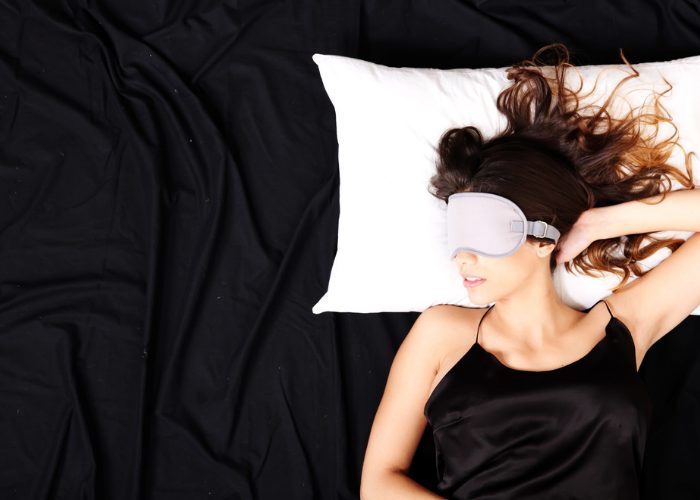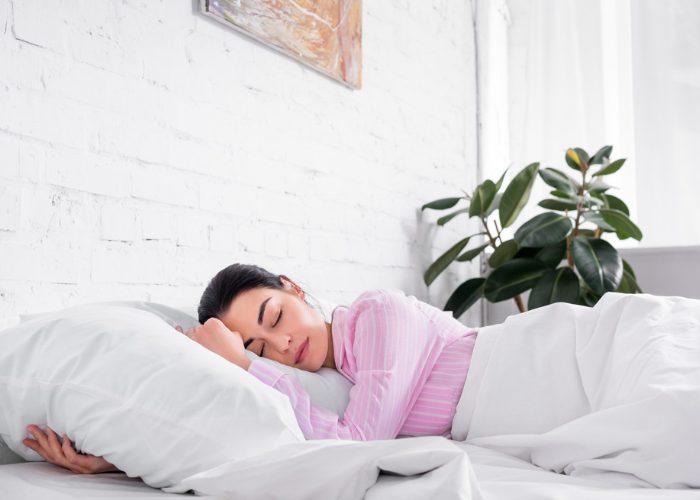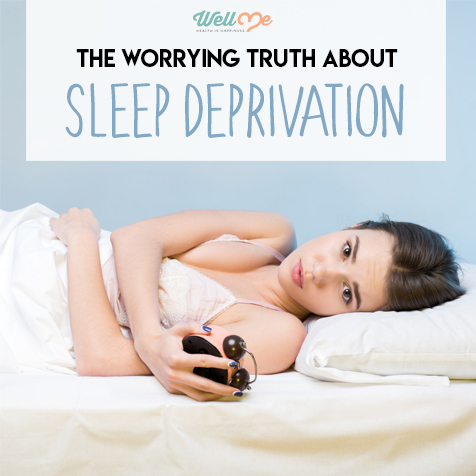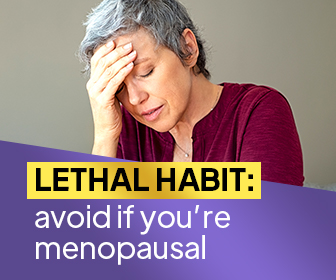Do you feel like you’re always tired? Do you feel like you walk around in a fog most of the time? Do you toss and turn at night or just not make sleep a true priority?
If any of this sounds familiar, you may very well be suffering from sleep deprivation. Let’s be real in saying that most of us struggle from sleep deprivation on some level. We’re always busy doing a million things that we just can’t get a good night of sleep. You probably think that it’s not a big deal, but it can be hurting you in the long run.
There are times when sleep deprivation is just a reality. If you have a new baby or if you are traveling abroad, sleep may not be an option. For the most part though, most of us need to make sleep a more significant reality. It’s not a priority because we feel like we have so much more to do in a day. The last thing that we have time for is to get in the ideal 7 to 8 hours.
What you may not realize is that the foggy feeling you have isn’t just a passing thing. A recent study shows that sleep deprivation can cause some very real and potentially long-term problems in your health. If you aren’t getting enough sleep each night, it’s not just your imagination that you are walking around in a daze. You are actually dealing with some long-term side effects. This new study really helps to shed light on what is going on in your body when you are sleep deprived for a long period of time.
Important Sleep Statistics

Some of the actual statistics on sleep can be staggering. You may know in the back of your mind that you need more sleep, but when you see the facts it’s a huge wake-up call. The findings of this study are important for you to pay closer attention to. Here are a few statistics that can highlight the true necessity of sleep in your life[1]:
- Over 20% of American adults suffer from frequent or chronic sleep deprivation or even sleep disorders
- More than 1,500 deaths are caused every year by drivers falling asleep at the wheel
- Nearly 40% of people report unintentionally falling asleep during the day at least once a month [2]
These statistics paint a very scary picture, but a real one. It’s imperative that you get a good night of sleep or else you put yourself at risk of some of these very scary situations. This doesn’t even take into account what happens to your health and well being if you continue to go without sleep for too long. Let these cold hard numbers show you just how important this is and how real sleep deprivation.
Recommended Hours Per Night

Yes, there is a definite recommendation when it comes to how much sleep you should be getting each night. This depends upon your age of course, but these guidelines can be quite helpful[3].
If you are talking about a child then, depending on the age, they may need as much as 8 to 11 hours. If you’re looking at a typical adult, the answer is much more clear and concise. It is advised that an adult aim for 7 to 9 hours of sleep each and every night.
That seems impossible to some people, but that’s what your body needs. The older you get, the more you may move towards the 7 hours of sleep that we’ve always been told we should strive for. Though at first this may sound like something you simply can’t make happen, after a while you will recognize that you are healthier because of it. You won’t have that fog anymore and you will know how to take care of yourself in this capacity.
Findings of the New Study on Sleep Deprivation

Some of this may come as no surprise while the rest may be interesting validation. This study helps to highlight what happens during sleep deprivation and what it can mean to your long term health.
The new study reiterates some of the things that many of us already feel when we don’t get enough sleep each and every night. This may change your view of it or at the very least help you to change your ways and make sleep a true and lasting priority.
The study recognizes that most of us as adults are sleep deprived. Most of us don’t get the recommended seven hours of sleep each night. That foggy feeling that you experience in addition to sleepiness is not just in your imagination. Sleep deprivation actually disrupts your brain cells’ ability to properly communicate with each other, so to speak. The result? There are temporary mental lapses in your memory and even your vision. This is the foggy feeling put into real life terms.
The study observed patients with epilepsy as they performed tests to measure perceptiveness overall. This showed that a lack of sleep on a long term basis interferes with the neurons ability to deal with and respond to information. There is no perception and therefore a very delayed reaction time associated with it as well.
So, think of this in terms of an overly tired driver. In normal circumstances, they see a pedestrian crossing the street. They are aware of everything around them and they can react to it quickly. If this same tired is sleep deprived, then they won’t notice that same pedestrian until it’s too late. They don’t have the perception nor do they have the reaction time. The results of this can, of course, produce dire consequences.
The only true way to treat this problem is to get proper sleep. Even sleep medication will only provide a short-term fix. If you want to counteract and deal with sleep deprivation and ensure that you get rid of the foggy feeling, you absolutely need to get more of it.
There’s no two ways around it, and therefore you absolutely have to work through this on your own. The study is very clear on the foggy feeling, sleep deprivation in general, and the way that you can have a very negative impact on areas of your life if this goes on for too long.
Action Steps: Tips for Improving Sleep

The reality is that most of us know we should get more sleep, but until you read something like the study discussed above, you don’t realize just how important that it is. Now that you know just how crucial it is to avoid sleep deprivation, you want to be sure that you get yourself into this frame of mind.
To ensure that you get a good night of sleep and to make this a way of taking care of yourself, here are a few tips and recommendations. Simply recognizing it’s a priority and why is an excellent starting point. Now it’s time to make it happen and take care of yourself in one of the most important ways possible.
- Create the right environment to fall asleep and stay asleep: This is important because if it’s not a good environment, you won’t get the sleep you need. You need to not only fall asleep, but you need to stay asleep. That means that you want your room cool enough and quiet. You ideally want it free of distractions and you don’t want to be watching TV or on your phone right before bed. Cut out technology and any outside noise, turn on a fan for white noise if you need it, and then let yourself drift off to sleep. You may even wish to make use of calming essential oils for sleep.
- Make a good night of sleep a true priority: No matter what you may have going on, don’t skip out on sleep. Don’t make the mistake of telling yourself you can go without sleep. You now see and understand the implications of sleep deprivation, so it’s time to take care of yourself in a really vital way and make sleep a priority rather than a luxury. Changing your outlook will help you to stay committed and ensure that you do this for yourself, no matter what else you may have going on.
- Make this a habit that is part of your overall wellness: As you are changing your attitude and approach towards sleep you also want to be sure that you are learning to create good habits where sleep is concerned. It takes about a month to make something a habit so keep working towards it. Keep setting a bed time and then sticking to it. Eventually this will just be your new norm and you won’t have to worry about the potential for sleep deprivation. It may sound like a lot now but soon enough you will be getting good sleep and enjoying the wonderful benefits of it now and into the long term.

The truth is that you cannot survive without sleep and your body simply won’t perform at its best if you don’t get enough of it. Fortunately, it is easy to improve your sleep habits -it just takes a little time and effort. So get started!
References
- [1] “Sleep Facts and Statistics.” SleepPhones. <https://www.sleepphones.com/statistics>
- [2] “Sleep and Sleep Disorder Statistics.” American Sleep Association. <https://www.sleepassociation.org/sleep/sleep-statistics/>
- [3] “How Much Sleep Do We Really Need?” Sleep Foundation. <https://sleepfoundation.org/excessivesleepiness/content/how-much-sleep-do-we-really-need-0>








